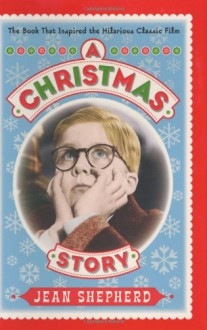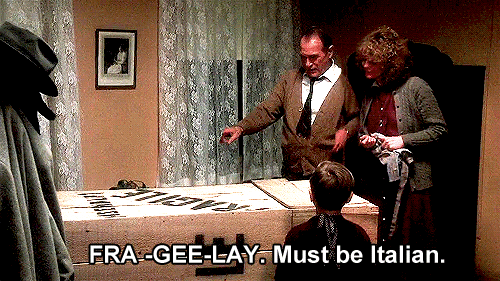
In mid May the gamers were euphoric about the third part of The Witcher game. We must confess that we've joined this ecstasy! :D The Witcher 3 absolutely rocks! And we started wondering that movies based on novels are not uncommon any more but did you know that many games took their origins from literature? Have a look at 7 awesome book inspired games: read, play and have fun!
P.S. If you're a BookLikes member and view this post on your Dashboard, please go to the BookLikes Blog view to watch the official game trailers (click).
1. The Witcher
This world doesn't need a hero
It needs a Professional
The Witcher 3: Wild Hunt is an action role-playing video game developed by Polish video game developer CD Projekt RED. The game is the third in the series, all parts are based on the series of fantasy novels by the Polish author Andrzej Sapkowski, but all take place after them. The game was released May 19, 2015 but it has already won several awards in 2013 and 2014, it won IGN's E3 People's Choice Award in 2013 and 2014, and won GameSpot's E3 People's Choice Award in 2014. It also won the Most Anticipated Game during The Game Awards 2014 in Las Vegas.
 Book it is based on:
Book it is based on:
Title: The Last Wish
Authir: Andrzej Sapkowski
Geralt is a witcher, a man whose magic powers, enhanced by long training and a mysterious elixir, have made him a brilliant fighter and a merciless assassin. Yet he is no ordinary murderer: his targets are the multifarious monsters and vile fiends that ravage the land and attack the innocent. He roams the country seeking assignments, but gradually comes to realize that while some of his quarry are unremittingly vile, vicious grotesques, others are the victims of sin, evil or simple naivety.
2. Metro 2033
Released in March 2010 Metro 2033 is a survival horror shooter video game based on the novel Metro 2033 by Russian author Dmitry Glukhovsky. After atomic attacks on Russia, survivors are forced to live underground where they face not only aggressive humans but also mutated animals and other creatures. Warning: it's not a game for someone with cold feet, the game received many praises for its horror elements.

Book it is based on:
Title: Metro 2033
Author: Dmitry Glukhovsky
The year is 2033. The world has been reduced to rubble. Humanity is nearly extinct. The half-destroyed cities have become uninhabitable through radiation. Beyond their boundaries, they say, lie endless burned-out deserts and the remains of splintered forests. Survivors still remember the past greatness of humankind. But the last remains of civilisation have already become a distant memory, the stuff of myth and legend. More than 20 years have passed since the last plane took off from the earth. Rusted railways lead into emptiness. The ether is void and the airwaves echo to a soulless howling where previously the frequencies were full of news from Tokyo, New York, Buenos Aires. Man has handed over stewardship of the earth to new life-forms. Mutated by radiation, they are better adapted to the new world. Man's time is over. A few score thousand survivors live on, not knowing whether they are the only ones left on earth. They live in the Moscow Metro - the biggest air-raid shelter ever built.
3. Alice
American McGee's Alice is a psychological horror action video game released in December 2000. The game takes place several years after Alice's Adventures in Wonderland and Through the Looking-Glass and features older Alice. Both the setting and the main character are much more macabre than the world presented in works by Lewis Carroll.

Book it is based on:
Title: Alice's Adventures in Wonderland & Through the Looking-Glass
Author: Lewis Carroll
The Mad Hatter, the Ugly Duchess, the Mock Turtle, the Queen of Hearts, the Cheshire Cat-characters each more eccentric than the last, and that could only have come from Lewis Carroll, the master of sublime nonsense. In these two brilliant burlesques he created two of the most famous and fantastic novels of all time that not only stirred our imagination but revolutionized literature. 
4. Sherlock Holmes
Sherlock Holmes has been a subject on many games and The Testament of Sherlock Holmes, an adventure video game released in 2012, is just one out of numerous interpretations of Arthur Conan Doyle's character. The majority of game setting involves crime scenes and examining clues, the player can control Sherlock Holmes, dr. Watson, and Toby, a basset hound.

Book it is based on:
Title: Sherlock Holmes: The Complete Novels and Stories, Volume I
Author: Arthur Conan Doyle
Since his first appearance in Beeton’s Christmas Annual in 1887, Sir Arthur Conan Doyle’s Sherlock Holmes has been one of the most beloved fictional characters ever created. Holmes, master of disguise, reasoned logically to deduce clients' background from their first appearance. He used fingerprints, chemical analysis, and forensic science. 
5. Game of Thrones
Released in 2014 Game of Thrones is an episodic graphic adventure fantasy drama video game based on the A Song of Ice and Fire fantasy novels by George R. R. Martin and their TV adaptation. George R. R. Martin stated that his personal assistant, Ty Corey Franck, is working with Telltale Games as a "story consultant".

Book it is based on:
Title: A Game of Thrones
Author: George R.R. Martin
A Song of Ice and Fire series comprises a genuine masterpiece of modern fantasy, bringing together the best the genre has to offer. Magic, mystery, intrigue, romance, and adventure fill these pages and transport us to a world unlike any we have ever experienced. Already hailed as a classic, George R. R. Martin’s stunning series is destined to stand as one of the great achievements of imaginative fiction. 
6. Batman
Batman: Arkham City is a 2011 action-adventure video game based on large collection of Batman stories. The game received praises for character and world design, soundtrack, and Batman's combat skills.

Book it is based on:
Title: Batman: Year One
Authors: Frank Miller, David Mazzucchelli, Richmond Lewis, Dennis O'Neil
Lieutenant James Gordon takes up a new post in the crime-ridden and corrupt city of Gotham, while billionaire Bruce Wayne returns to the scene of his parents' deaths, intent on punishing the criminal element. 
7. The Walking Dead
The Walking Dead is an episodic interactive drama graphic adventure video game. The game takes place in the same fictional world as the comic, with events occurring shortly after the onset of the zombie apocalypse. Unlike many other adventure games, The Walking Dead: Game focuses more on story and character development than on puzzle solving.
 Book it is based on:
Book it is based on:
Title: The Walking Dead, Vol. 1: Days Gone Bye
Authors: Robert Kirkman, Tony Moore
An epidemic of apocalyptic proportions has swept the globe, causing the dead to rise and feed on the living. In a matter of months, society has crumbled: There is no government, no grocery stores, no mail delivery, no cable TV. Rick Grimes finds himself one of the few survivors in this terrifying future. A couple months ago he was a small town cop who had never fired a shot and only ever saw one dead body. Separated from his family, he must now sort through all the death and confusion to try and find his wife and son. In a world ruled by the dead, we are forced to finally begin living. 
Let us know if we’ve missed any of your favorite games based on books in the comments below!


 Log in with Facebook
Log in with Facebook 























